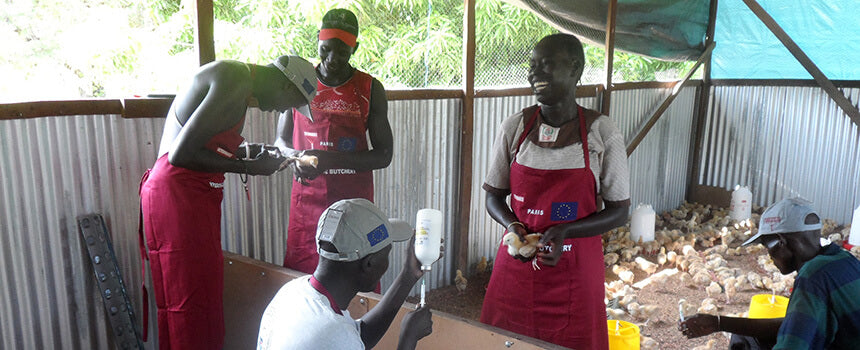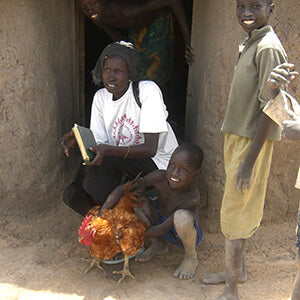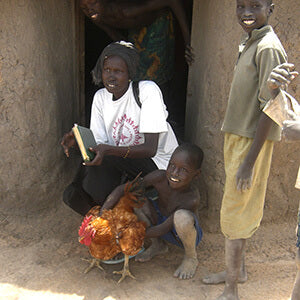Day 4
7 chickens are vaccinated in South Sudan
 First came the chicken, then the egg
First came the chicken, then the egg


Food security in South Sudan

need
Improved supply of basic foodstuffs (protein) to South Sudanese families.
activity
Veterinarians Without Borders raises chicks, vaccinates them and distributes them once they are fully grown to women in particular need.
Measurable performance
Number of chickens vaccinated against diseases & number of households that received 7 chickens each.
Result
Compared to the beginning of the civil war, approximately 6,000 households are expected to have an improved nutritional situation.
Systemically relevant impact
Food and income security leads to less potential for conflict and refugees.
background


The good deed
AboutSouth Sudan
Juba
Capital city
12 339 800
Population
785 USD
Gross domestic product
per capita per year
169
Human Development Index
(Human Development Index)
